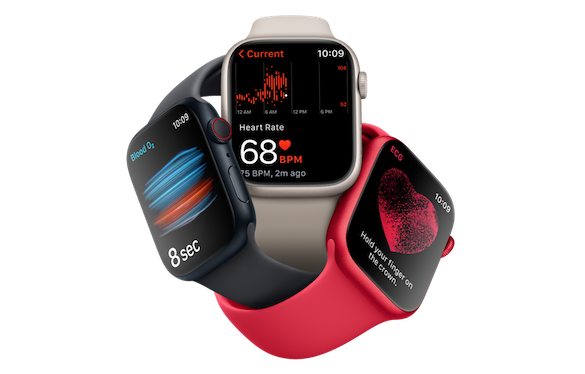Article
Spotlight: Real World Evidence Studies
Real World Evidence (RWE) studies are an interesting option for hospitals to participate in clinical research and to gain insight into the effectiveness of their own practices, treatment plans or therapies. The CTcue platform in the Forcea HealthReport Clinical module facilitates a hospital’s RWE projects with fast, reliable and GDPR-compliant results.
Do you know Real World Evidence (RWE) studies? Many healthcare professionals don’t. This lack of awareness dates back to the pre-digitization days, when RWE research was limited as locating, sorting through and analyzing hard copies of clinical documentation was both time-consuming and cumbersome. Now, Electronic Health Records (EHR) and automated search technologies such as CTcue simplify, expedite, and improve the quality of RWE studies. This has made RWE research an interesting option for hospitals to participate in and benefit from clinical research.
What are RWE studies?
RWE studies help provide insight into the use and effectiveness of new drugs, treatments and therapies using real-life hospital data. The first question that often comes up when talking about RWE studies is how they relate to traditional clinical trials, still widely considered the gold standard of clinical research. While clinical trials operate within randomized, controlled settings with a very homogenous, highly specific patient population, RWE studies real-life, everyday use in heterogenous, representative patient populations. The Evidence Base writes, “Due to the strict inclusion, exclusion and protocol requirements of many clinical trials, they may be deemed to be poorly reflective of real-world conditions and individuals, who may have multiple co-morbidities, not adhere to their regimens as prescribed or simply be unable to physically participate in a trial, due to geographical location.” Taking the research subject out of its controlled setting, “reflecting real-world people, environments and conditions”, can provide a wealth of information about its added value and (cost-) effectiveness, and the standard of care. That is also why RWE studies are often set up by hospitals to gain insight into diseases and the effectiveness of treatments, therapies and medications. RWE studies can also play a role in the evaluation of drugs that have received conditional reimbursement status.
Digitizing and advancing RWE
In the last few years, the implementation of Electronic Health Records (EHR) and the technologies that allow for automated searching and analyzing of EHR data have significantly advanced the field of RWE research. By simplifying and expediting RWE studies, improving their quality and the richness of their data, these recent technologies have augmented the RWE weight of evidence to the point where it can play a substantial role in healthcare and decision-making processes.
CTcue
Many hospitals still rely on Real World Data collection via manual review of their EHR database, a process that is both time-consuming and error prone. However, the CTcue search technology for structured and unstructured data that is part of the Forcea HealthReport Clinical module can play a role in facilitating patient selection for and efficient analytics of RWE studies. Independent research has shown that using CTcue for patient selection is up to 40x faster than manual methods. These time savings can be the deciding factor for a hospital participate in an RWE study.Moreover, CTcue produces reliable results. The Leiden University Medical Center studied manual and CTcue EHR validation of patients receiving metastatic renal cell carcinoma treatment. They concluded that, “Validation of patient characteristics and treatment outcomes did not show significant differences between the text mining approach with CTcue Clinical Data collector versus the manual review.” They also state, “CTcue Clinical Data Collector is a promising tool for collecting real-world data from electronic health records since a significant decrease in collecting time can be established.”
Kris Oosterlinck of IQVIA Healthcare also points out that, “Traditional feasibility studies often overestimate the potential patient cohort, requiring additional patient selection after the trial has started. CTcue is a very useful tool to produce more reliable feasibility results.”
Aside from increased reliability, technologies such as CTcue give RWE studies a greater weight of evidence, as more patients and more data points can be included in the study.
A final important advantage of CTcue is that it can pseudonyminize data, replacing personally identifiable information with artificial identifiers for anyone other than the patient’s treating physician. As a result, CTcue is fully GDPR-compliant.
Eliminating RWE Roadblocks
“Facilitating technologies such as Forcea HealthReport Clinical and CTcue really remove the roadblocks that keep Belgian hospitals from participating in Real World Evidence studies. They can be part of new drug and treatment developments and improve their own insights with reliable, GDPR-compliant results and without sacrificing too much of their own resources. It really is a win on all fronts,” concludes Oosterlinck.
For more information about Forcea HealthReport’s Clinical module and the CTcue platform, contact Kris Oosterlinck of IQVIA Healthcare.

























